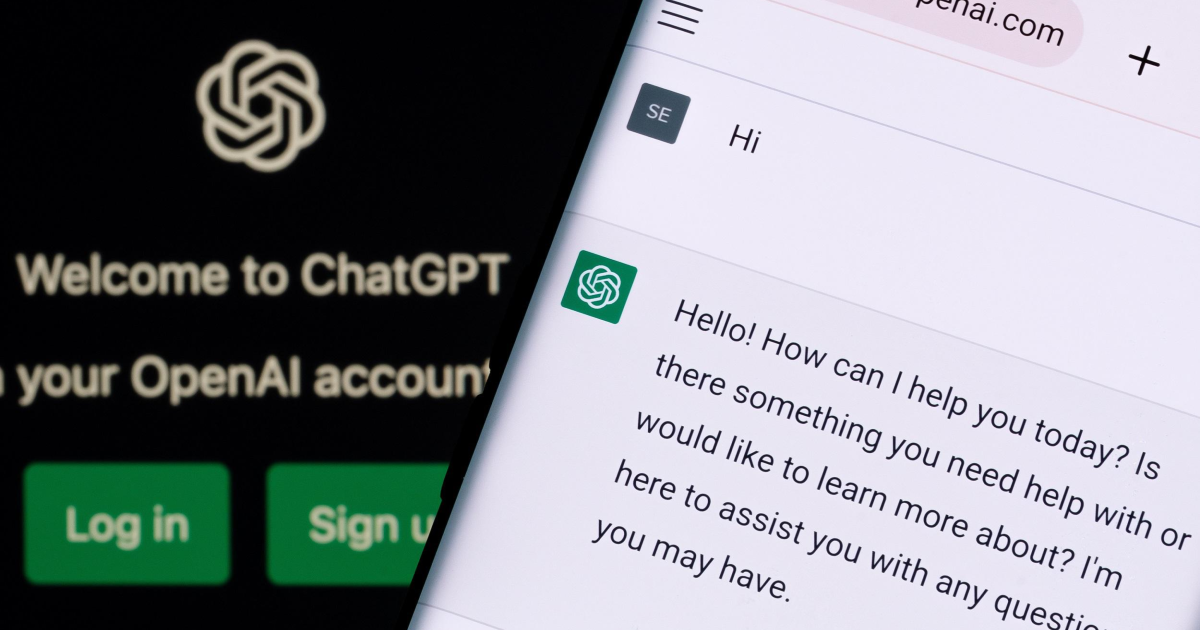ChatGPT says programmers are safe (for now)
We ask ChatGPT whether it can replace software engineers

So we've been talking to a lot of software engineers and non-software engineers about when (not if) ChatGPT (opens new window) will replace us. In our last post we explained how ChatGPT isn't replacing us yet and there are ways to actually be a better/faster software engineer with the help of ChatGPT. Now we're going to go directly to the source of truth and ask ChatGPT if it will replace software engineers.
# Will ChatGPT replace programmers?
It is unlikely that ChatGPT or any other natural language processing (NLP) model will completely replace programmers in the near future. While NLP models like ChatGPT can generate code snippets or even entire programs based on natural language inputs, they are not capable of replacing the full range of skills and responsibilities that programmers have.
Programming requires a deep understanding of the problem domain, the ability to design and implement complex algorithms and data structures, and the ability to debug and test code. These are skills that require significant training and experience to acquire, and that are not easily replicated by NLP models.
Moreover, NLP models like ChatGPT are not capable of understanding the complete context of a problem, and the code it generates may not be efficient or maintainable, unlike a human programmer. They can be used as an aid for the programmers, but not a full replacement.
Additionally, ChatGPT is trained on a vast amount of text data that is not necessarily relevant to the task of software development, and it may generate code that does not adhere to best practices or coding standards.
That being said, NLP models like ChatGPT can be a useful tool for software engineers, helping them to generate code snippets or entire programs quickly and easily, or even helping them to understand the requirements of a problem domain. However, they are not a replacement for the skills and expertise of a professional software engineer.
So on the one hand, this answer is very similar to what we wrote about last time so it makes a lot of sense. On the other hand, this is kind of like asking the prime suspect in a crime if they're the criminal. At least it doesn't seem like ChatGPT is actively working behind the scenes with the big tech companies to replace employees. I would wager most big tech companies are more concerned about about to use AI to sell more ads... I mean provide higher quality and more relevant personalized content. Anyways, ChatGPT did say something interesting about how it can be a useful tool for software engineers. Let's dig into that.
# How can programmers use ChatGPT to be a useful tool?
Programmers can use ChatGPT as a tool to help them generate code snippets, entire programs, or even to assist them in understanding the requirements of a problem domain. Here are a few examples of how ChatGPT can be used in software development:
Code generation: ChatGPT can be trained on code snippets and used to generate code based on natural language inputs. This can be useful for tasks such as creating boilerplate code or generating code for simple algorithms.
Requirements elicitation: ChatGPT can be used to help software engineers understand the requirements of a problem domain by generating natural language explanations of code snippets or entire programs.
Document generation: ChatGPT can be used to generate technical documentation, such as user manuals, API documentation, or code comments.
Debugging: ChatGPT can be used to help software engineers understand error messages and generate possible solutions.
Automating repetitive tasks: ChatGPT can be trained on a set of repetitive tasks and used to automate them. For example, it could be trained on a set of SQL queries and used to generate new queries based on natural language inputs.
It is worth noting that ChatGPT is not a magic solution that can solve any problem, and it's important to carefully evaluate the quality and correctness of the generated code or documentation. The generated code might not be efficient or maintainable, and it might require further modification.
When using ChatGPT or similar models in software development, it's important to keep in mind that the model is only as good as the data it's trained on and the quality of the inputs it receives. It's important to use the tool with caution and to verify the results.
This answer is quite interesting and I did think of some of these uses for ChatGPT but the idea of "Requirements elicitation" is interesting because it's almost the reverse problem of generating code, trying to understand someone else's code. Since I'm currently going through a new code base, I can tell you that if someone (or something, not sure the right pronoun for ChatGPT) could analyze a code base and walk me through it and explain how the code is organized, what are the main components and maybe even go as far as tell me which file I would need to change given a prompt of what I'm trying to do. For example, I would ask ChatGPT where would I make a change to include a new section on the homepage of a website and ChatGPT would figure out the file(s) that I should look at. That would be extremely helpful.
Again, to repeat what we said last time, software engineers don't have anything to be afraid of when it comes to ChatGPT. But for the entrepreneurial out there, ChatGPT could be the future of modern software engineering and you can start to shape that future now.
